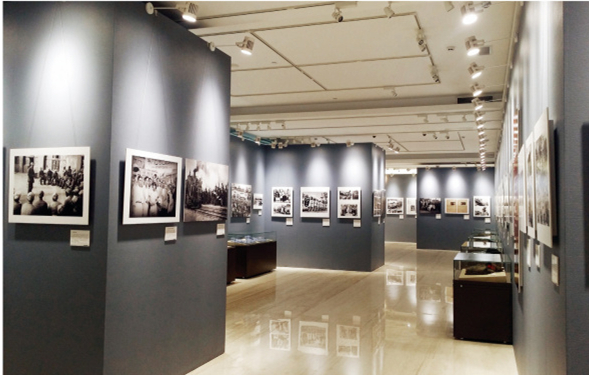Subjective historical data contains archival value

A display in the CPPCC Culture and History Museum. Launched in 2010, the museum has a large preservation of subjective historical manuscripts, books, pictures, paintings and videos.
In the 1960s, the Chinese People’s Political Consultative Conference (CPPCC) launched a large-scale project for the collection and compilation of historical accounts of the past events that yielded more than 100 volumes of the Selected Works of Historical Accounts of the Past Events. Comprehensively reflecting history from multiple perspectives, the collection offers a microcosm of Chinese political, economic, social and cultural development in recent years. However, in historical research, compared with archival history, this type of subjective historical materials based on memory, such as oral history and memoirs, are not given enough attention.
Supplement
Historians are placing increasing emphasis on the collection and application of archival history, adding objectivity and a more scientific approach to historical research. But a few scholars have overemphasized archives while advocating that subjective historical accounts, a secondary source, are not reliable. This tendency, limited the materials for research, should be avoided.
Wang Chaoguang, a research fellow from the Institute of World History Studies at the Chinese Academy of Social Sciences, said we cannot be too critical of subjective historical accounts. They are equivalent to oral history, which is also a type of the historical materials used in research. Without doubt, these materials are inevitably subjective due to the perspectives and biases of observers, along with mistakes made by narrators. But this is not a good enough reason to downplay their significance. History is multifaceted and so are historical materials. Even archival literature cannot avoid human intervention, which means they are also not immune to subjectivity. Therefore, finding ways to deal with these materials is the key to using them. Researchers should regard these kinds of materials to be as valid as other forms, Wang said.
Zhang Tongle, a professor from the School of History and Culture at Hebei Normal University, said the key to judging the value of subjective historical accounts is to see whether they honestly reveal historical facts. There are many materials that record the personal experience of narrators, who, as the party that is involved in the historical events, could provide the kind of history that cannot be found in archives. The fictional part in literary history does not affect the reflection of the nature of history. Although we emphasize the authenticity of history, we do not exclude the necessary text processing when writing memoirs of historical materials, Zhang said.
Principles
Considering that subjective historical accounts are not primary resources, it is necessary to compare them with archives, newspapers and journals when they are applied in historical research. Zhang proposed that historians should abide by three principles when using these materials: identifying their authenticity; investigating the accuracy of their contents; using them as auxiliary materials.
The first-hand materials in historical research must be the archives formed at the occurrence of the historical events, while oral or subjective accounts can only be used as supplementary information, Zhang said. A thesis of history will be much less valuable if most of the research materials come from subjective records. The combination of the two types of historical materials is the key to bringing forth high-quality monographs of historiography, he added.
Wang said accounts based on memory involve many characters. Therefore, in terms of biographies, well-presented historical details and relationships between historical characters could be used. The authenticity of history relies on the scientific and innovative nature of historical research formed after repeated examination, comparison and deliberation between identical or different historical materials. The application of subjective historical accounts is one key part in the process.
Apart from adequate use of the existing subjective historical accounts, the principles for the collection of oral historical materials should also be followed. Xu Shuitao, vice-president of the Chinese Oral History Society, said oral historical materials have opened up a new field for the accumulation and research of historical materials, whose collection depends on the interactions with the interviewee. It is the exchange of language, action and emotion. The quality of oral historical materials is determined by whether interviewers could let interviewees open their heart and speak their minds freely. Therefore, efficient communication and emotional identification between interviewers and interviewees are essential to collecting oral historical materials.
